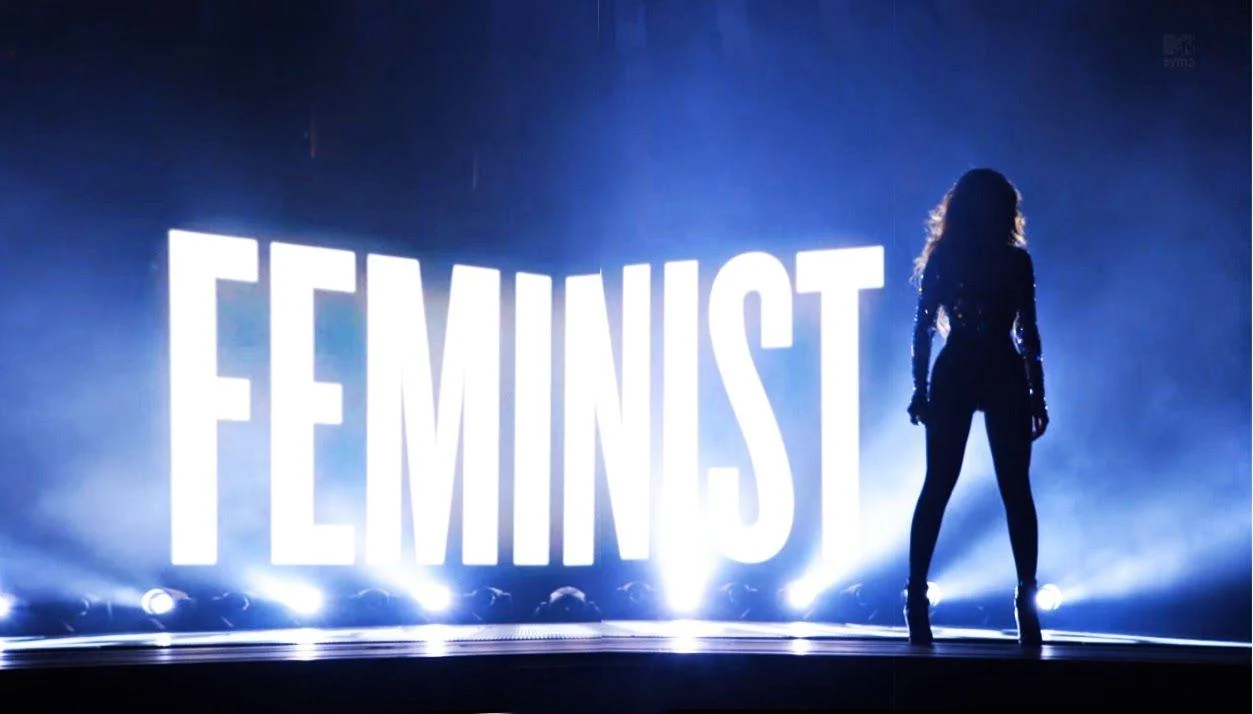By Angela April
The famous 43-year-old singer, songwriter Beyoncé Knowles-Carter often uses her music as a
platform to express feminist ideals. But does her work really push for a better future for women?
When asked if she considers herself a feminist, she said “…working to make those inequalities
go away is being a feminist, but more importantly, it makes me a humanist. I don’t like or
embrace any label. I don’t want calling myself a feminist to make it feel like that’s my one
priority, over racism or sexism or anything else. I’m just exhausted by labels and tired of being
boxed in.”
This response comes after her 2014 Mrs. Carter tour where she boldly illuminated the stage with
the word “Feminist” while performing. But instead of directly declaring herself a feminist,
Beyoncé explained that she used this moment to clarify what feminism really means. She
referenced a TED talk by author Chimamanda Ngozi Adichie, who defines it as “Feminist: the
person who believes in the social, political, and economic equality of the sexes.” This moment
on tour further established Beyoncé as a powerful advocate for women’s rights.
There are plenty of examples where Beyoncé has demonstrated feminism through her music and
activism. Going back to 2008, her song “If I Were a Boy” explores gender roles and the differences
in expectations between men and women. Beyoncé sings about the hypothetical scenario of
experiencing life as a man, highlighting the disparities in treatment between genders. “Single
Ladies” from the same year, encourages women to embrace their independence and not settle for
less than they deserve in a relationship. Lyrics in “Pretty Hurts” such as “Blonder hair, flat chest.
TV says bigger is better, Vogue says thinner is better,” critiques the damaging effects of the
narrow beauty standards placed onto women.
Chime for Change, a global campaign founded by Gucci in 2013 alongside Beyoncé, actress
Salma Hayek, and designer Frida Giannini, aims to improve the lives of women and girls around
the world. The campaign raises funds and awareness for projects that promote education, health,
and justice for women. Beyoncé has been actively involved in Chime for Change as a co-founder
and a key supporter of the initiative since it began.
In 2018, Beyoncé headlined the Global Citizen Festival in Johannesburg, South Africa, where
she called for greater action against gender-based violence and HIV/AIDS. Most notably,
Beyonce has founded BeyGOOD, her philanthropic entity established in 2013. BeyGOOD
promotes economic fairness by supporting marginalized and underserved programs. The
organization works towards breaking down barriers between education and poverty by offering
scholarships, internships that lead to job placement, and entrepreneurship support for businesses.
Overall, Beyoncé’s efforts towards a more just world are evident. Through her music, charities,
and platform she sheds light on societal issues while working towards a solution. There is no
doubt that Beyoncé has bettered the lives of many people, but is she a feminist?
There are many instances where her actions contradict feminist ideals. Beyoncé’s performances,
which often involve revealing outfits and provocative dance routines, can be seen as objectifying
women. The concern is that these performances tie Beyoncé’s worth to her physical appearance,
rather than her talent, intellect, or character. R&B music has always been guilty of sexually
exploiting women, from male rappers degrading and comparing them to objects– to female
rappers doing it on their own. Beyoncé’s music videos for Partition and Drunk in Love cater to
the male gaze by focusing on her body. Adopting the nickname “Queen Bey” and telling people
to bow down is not uplifting to other women or improving their overall status.
Chimamanda Ngozi Adichie responds to working with Beyoncé as “Her type of feminism is not
mine, as it is the kind that, at the same time, gives quite a lot of space to the necessity of men. I
think men are lovely, but I don’t think that women should relate everything they do to men: did
he hurt me, do I forgive him, did he put a ring on my finger?” Beyoncé uses the word feminist to
promote herself, but does not represent the depths of feminism or fully align with the feminist
values of equality and independence.
Another example of Beyoncé’s complicated relationship with feminism is her 2016 album
Lemonade. The album explores themes of infidelity and forgiveness, telling a personal story
about her marriage to rapper Jay-Z. The narrative of Lemonade places a burden on Beyoncé to
address and resolve the issues within her marriage; reinforcing the idea that women are
responsible for maintaining the stability of a relationship, even in the face of betrayal.
Beyoncé is an entertainer first and foremost. She’s been in the spotlight for over two decades,
and much of her career revolves around creating music and performances that sell. Her feminism
can be empowering in some ways, but her work mostly leans into objectification and glorifying
unhealthy relationships, which is something feminists fight against. Beyoncé knows how to keep
her fans engaged, but when it comes to whether she is truly a feminist—one who uplifts and
empowers all women—it’s not so convincing.




